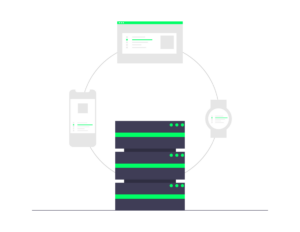About ALLEGRO ‘Agile ultra low energy secure networks’
 ALLEGRO aims at designing and validating a novel end-to-end sliceable, reliable, and secure architecture for next-generation optical networks, achieving high transmission/switching capacity
ALLEGRO aims at designing and validating a novel end-to-end sliceable, reliable, and secure architecture for next-generation optical networks, achieving high transmission/switching capacity
- with 10 Tb/s for optoelectronic devices and 1 Pbt/s for optical fiber systems
- low power consumption/cost
- with > 25% savings
- and secure infrastructures and data transfers.
The architecture relies on key enabling innovations:
- smart, coherent transceivers exploiting multi-band & multi-fiber technologies for P2P and P2MP applications, based on e.g., high-speed plasmonic modulators/photodetectors and programmable silicon photonic integrated waveguide meshes;
- loss-less, energy-efficient transparent photonic integrated optical switches, eliminating OEO conversions, e.g., with on-chip amplification in the O-band for datacom applications;
- a consistent approach to security, in terms of functional/ protocol architectures and communications, further improving QKD systems, enabling optical channel co-existence and researching on quantum-resistant (post-quantum) cryptography, developing systems based on physically unclonable functions; and
- a scalable AI/ML assisted control and orchestration system, responsible for autonomous networking, dynamic and constrained service provisioning, function placement and resource allocation, leveraging devices increasing programmability and overall network softwarization.
To achieve the target objectives and KPIs, ALLEGRO has defined a clear methodology ending in ambitious demonstrators. The consortium includes a good balance of industry and research/academia with know-how in complementary fields.
The results of ALLEGRO will be disseminated in leading conferences, events, and high-impact journals. They will have a concrete and measurable economic and social impact, contributing towards achieving key European objectives, reinforcing European leadership and digital sovereignty in the ongoing digital and green transition.
Project News
ALLEGRO Project Update – Novel Coherent Transceiver Architecture
As part of the ALLEGRO project, we are excited to present our novel coherent transceiver architecture that enables both high-speed data transmission and optical identification (OI) in a point-to-point classical fibre link between Alice and Bob. 🔹 Key Capability: This...
Combining PUFs, QRNG, and QKD for Next-Generation Secure Authentication
In the ALLEGRO project, we are exploring a novel technique for user authentication in Quantum Key Distribution (QKD) systems by integrating Physical Unclonable Functions (PUFs) with Quantum Random Number Generators (QRNG) and Quantum Key Distribution (QKD) itself. In...
Allegro Project Update – Exploring Machine Learning Attacks on Inter-Class Datasets with GANs
As part of our work in the EU-funded Allegro project, we investigated a machine learning-based attack on Physical Unclonable Function (PUF) systems using Generative Adversarial Networks (GANs). ➡️ We specifically used a Conditional GAN (cGAN) implemented through the...
Exploring the Complexity of CRPs with Multiscale Entropy Analysis
As part of our ongoing work in the Allegro project, we investigated the complexity of Challenge-Response Pairs (CRPs) using a multiscale entropy approach — an essential step in characterizing Physical Unclonable Functions (PUFs) for secure embedded systems. 🧠 What...
Allegro Project Update – Post-processing Algorithm for Cryptographically Secure Speckle-based PUFs
We’re excited to share a core component of our work in the Allegro Project – the Post-processing Algorithm that transforms raw optical speckle patterns into cryptographically secure binary sequences, without storing any raw experimental data. This is a major step...
ALLEGRO Project: Optical PUFs for Next-Generation Network Security
In ALLEGRO, we're rethinking how networks verify trust. Modern network security depends on confidentiality, integrity, and authenticity—but traditional mechanisms are often vulnerable to sophisticated attacks. That’s why within the ALLEGRO project, we're pioneering...
Allegro Project Update: Enhancing QKD Performance with Receiver-Side Filtering
One of the key challenges in co-propagation Quantum Key Distribution (QKD) is the noise caused by Raman scattering and broadband detector sensitivity. At Allegro, we're tackling this by improving spectral filtering at the receiver side — a critical step to maximize...
Multiplexing Quantum and Classical Channels: A Step Forward in Practical QKD Deployment
An essential requirement for deploying Quantum Key Distribution (QKD) in real-world Optical Transport Networks (OTNs) is the co-propagation of quantum and classical channels over the same fibre infrastructure. Within the ALLEGRO project (Horizon Europe GA ID:...
test publication
Project Spotlight: Long-Range QKD with Allegro
🔐 In the quantum era, secure communication is more critical than ever. Our latest work at Allegro focuses on enhancing the dynamic range of Quantum Key Distribution (QKD) systems — pushing the limits of how far Alice and Bob can be apart while still securely sharing...
